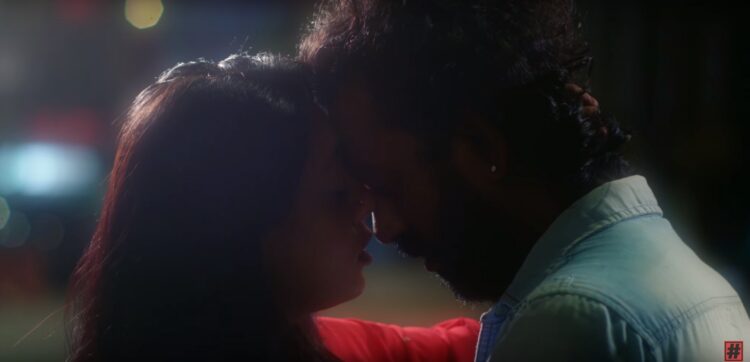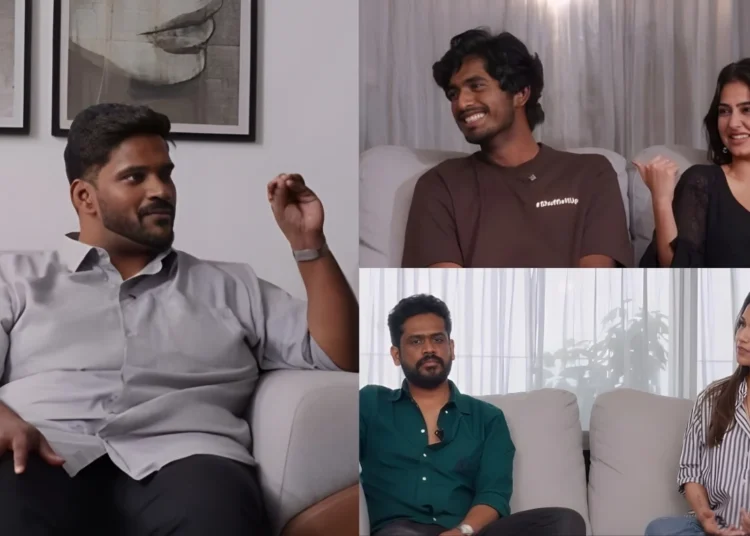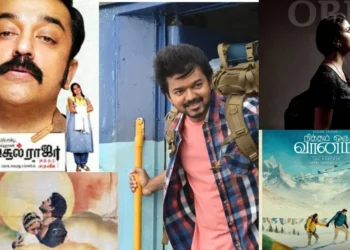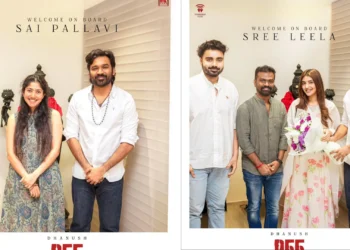This review of Metro Maalai contains spoilers.
Metro Maalai tells an unspectacular tale (I mean that as a compliment) of two individuals, one of whom is married, who cross paths and develop an attraction for one another. Sathish plays a dejected but talented musician. He strums his guitar — cigarette on headstock like Eric Clapton — rather beautifully and sings his heart out at pubs until they close, before collecting shitty paychecks from unappreciative bar managers. When he gets back to his cramped room in a low-cost flat, he dips cream crackers in cheap whiskey, while having another cigarette — probably his 40th Gudang Garam of the day.
He has a cheap radio hanging by his window, in which he blares songs from the 70s and 80s. The only thing he loves more than smoking and drinking is music and reading, the floor of his room flooded with books and empty beer cans. The walls of his room are decorated with posters of famous old school American rock bands like Nirvana, classic Rajinikanth movies like Thalapathi and Baasha (a man of exquisite taste, I thought to myself) and a photo of his ex-girlfriend, Jasmine. Sometimes he looks outside his window at random girls standing by the corridor of the block opposite his and wonders what it would be like if they were dating. His life is loud but empty. There’s a hole deep inside of him, a dark void that drives him to contemplate suicide. He believes a romantic relationship will liberate him from his sadness.

On the other side of Kuala Lumpur, resides Punitha Shanmugam’s character, a woman whose marriage is falling apart much to the ignorance of her absentee, solely career-focused husband. In contrast to the Sathish character scenes, her scenes play out in stillness and silence. Directors Haran Kaveri and Shobaan tell plenty with minimal dialogue. The Punitha character lives in a house that’s big and beautiful but soundless and hollow. It’s a house that hasn’t heard the melody of laughter in ages. I love the way the directing duo frames her husband — you don’t see his face, only hear his voice. To her, he has become a faceless and fading entity and their loveless marriage. She prepares dinner for him, he tells her he’s already eaten. She asks if they can go for a vacation, he suggests they pop a baby to keep her occupied, instead. He’s an asshole. But I think the straw that broke the camel’s back is when he tells her not to change the channel when Vijay’s Sura starts playing on the TV.
I chuckled. It’s a witty juxtaposition. I think these cheeky directors must be Rajini fans. I should’ve stayed on for the Q&A session to give these guys a high five. I mean, c’mon! An unfulfilled wife who thinks about cheating on her husband (who happens to be a Vijay fan) with a gifted musician (who happens to be a Rajini fan). There’s no way that’s unintentional. Surely not from the guys who crafted this beautiful scene: Punitha opens the door of her birdcage. Like the bird, she feels trapped, longing to break free and spread her wings. The bird doesn’t fly away, perhaps foreshadowing what’s to come.
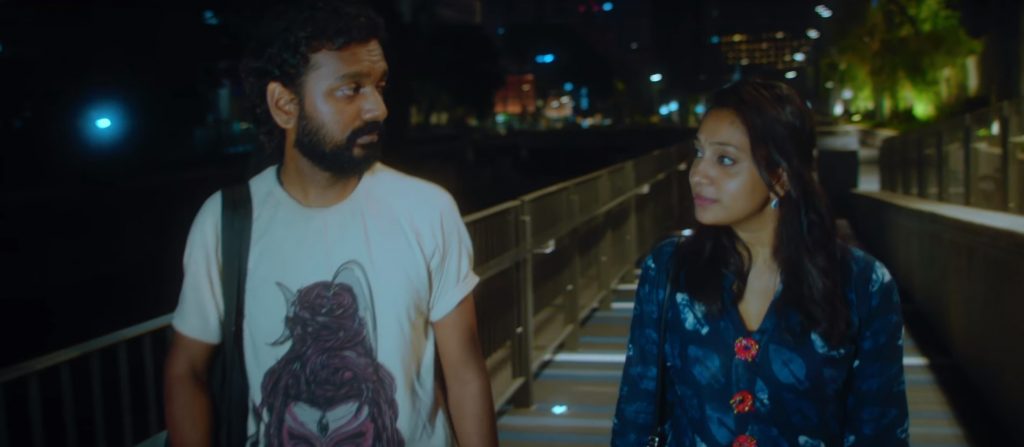
The set up of the film is great. But Metro Maalai fumbles when it matters most: When our two leads finally meet and converse during their multiple dates. Yes, they discuss smart and philosophical subject matters like their passion, God, religion and the meaning of life. And nothing is more erotic than when two minds connect. But the conversations play inorganically as if the writers are just ticking a bunch of checkboxes. And why aren’t they talking to each other about things that are more personal and intimate, as well?
Why aren’t they teasing each other and cracking jokes? They have drinks at a park. Why don’t they lie on each other’s lap? Why aren’t they talking about sex (i.e. “So, how experienced are you? Was your sex life with Jasmine fun? My husband and I haven’t done it in 6 months”). These are adults in their 30s, after all. Why isn’t there a scene where he asks if she’d like to head up to his room and she contemplates doing exactly that (or vice versa), as we shudder in anticipation? Also, if meeting each other supposedly makes them feel more alive then they’ve ever felt in a long time, why do the scenes still feel dispirited and unenergetic?
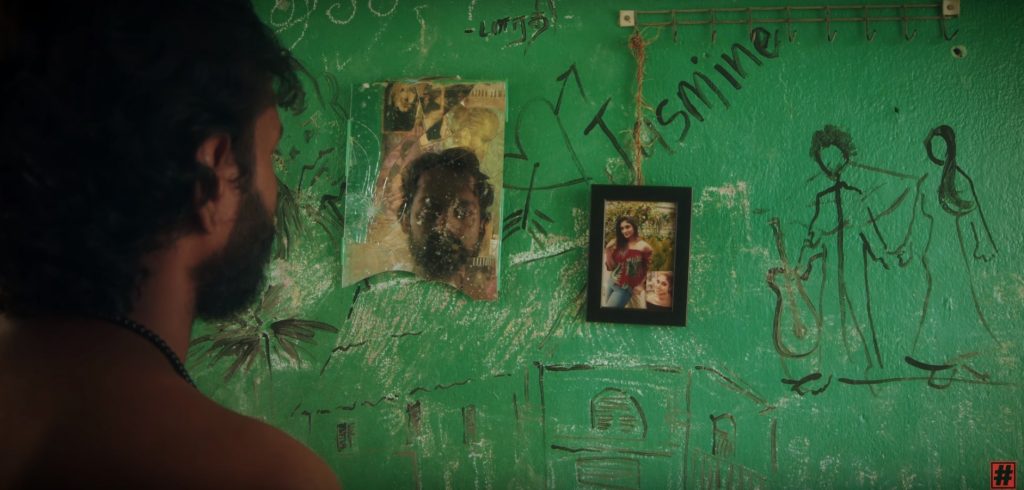
But it’s not just what they say and do, it’s also about the ‘how’. A great romance only works if there’s sexual chemistry and tension between the two leads, a tension that overflows out of the screen and engulfs the audience. I watched 96 and my heart desperately wanted Trisha and Vijay Sethupathi to get naked in bed with each other, but my brain told me that wouldn’t be a good idea. That’s the key without which these films wilt. Actors Punitha and Sathish lack that raw chemistry.
And it’s this lack of chemistry that makes the two dialogue-heavy scenes –important scenes — frankly, very boring. There’s no escalation of tension or drama in these dialogues. The characters can’t wait to meet each other again, but their supposed feelings don’t translate to the audience. (The poor sound design certainly doesn’t help. At times, it becomes a daunting challenge to hear what these characters are saying.)
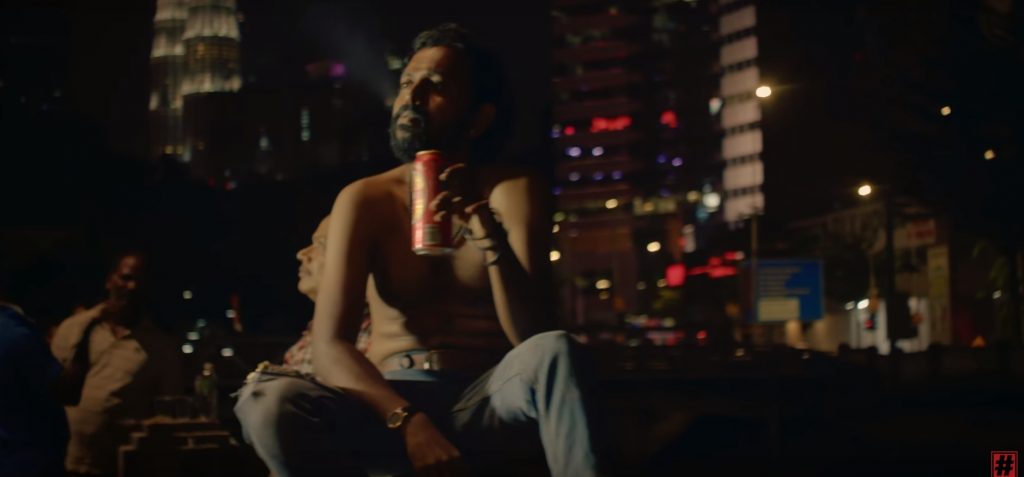
So, where does that leave us? Metro Maalai is a good attempt. I appreciate that we get a film that tries to tell a more grounded, adult story. Directors Haran Kaveri and Shobaan have tremendous potential, as seen in the first two acts of the film that’s simply oozing with detail. But the actors lack chemistry and the dialogue are mundane. And despite its ‘18’ rating, the film still feels too safe and not as profound as it thinks it is.
Metro Maalai hits Malaysian cinemas on 28 November 2019.
Click here to check out my review of Bigil.
Follow us on Instagram, Facebook or Telegram for more updates and breaking news.


